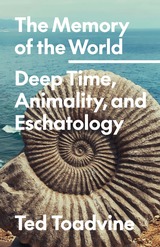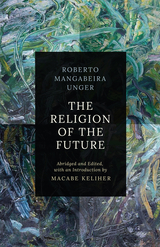
Roberto Mangabeira Unger's The Religion of the Future is a secular project for spiritual and political revolution. It offers a comprehensive vision of humanity and a program for the refashioning of self and society that will enable each man and woman to live a greater life. Unger exhorts us to embrace the life we have now by recognizing what makes us human rather than attempt to suppress or overcome — as do existing religions — our existential and spiritual limitations. His program involves both political measures to reform the structure of society and a moral component to engage an individual's conduct of life. Unger's vision of the religion of the future offers us more life here and now so that we can become more human by becoming more godlike. This abridgment represents an edited rendition of the original that, although reduced in size, is complete in argument. It contains an extensive introduction to the argument and the author.
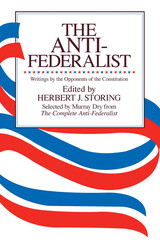
This one-volume edition presents the essence of the other side of that crucial dialogue. It can be read as a genuine counterpart to the Federalist Papers; as an original source companion to Storing's brilliant essay What the Anti-Federalists Were For (volume I of The Complete Anti-Federalist, available as a separate paperback); or as a guide to exploring the full range of Anti-Federalist writing. The Anti-Federalist makes a fundamental source of our political heritage accessible to everyone.
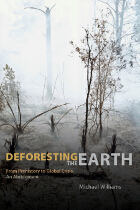
Published in 2002, Deforesting the Earth was a landmark study of the history and geography of deforestation. Now available as an abridgment, this edition retains the breadth of the original while rendering its arguments accessible to a general readership.
Deforestation—the thinning, changing, and wholesale clearing of forests for fuel, shelter, and agriculture—is among the most important ways humans have transformed the environment. Surveying ten thousand years to trace human-induced deforestation’s effect on economies, societies, and landscapes around the world, Deforesting the Earth is the preeminent history of this process and its consequences.
Beginning with the return of the forests after the ice age to Europe, North America, and the tropics, Michael Williams traces the impact of human-set fires for gathering and hunting, land clearing for agriculture, and other activities from the Paleolithic age through the classical world and the medieval period. He then focuses on forest clearing both within Europe and by European imperialists and industrialists abroad, from the 1500s to the early 1900s, in such places as the New World, India, and Latin America, and considers indigenous clearing in India, China, and Japan. Finally, he covers the current alarming escalation of deforestation, with our ever-increasing human population placing a potentially unsupportable burden on the world’s forests.
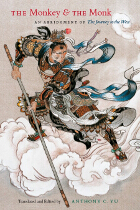
Anthony C. Yu’s celebrated translation of The Journey to the West reinvigorated one of Chinese literature’s most beloved classics for English-speaking audiences when it first appeared thirty years ago. Yu’s abridgment of his four-volume translation, The Monkey and the Monk, finally distills the epic novel’s most exciting and meaningful episodes without taking anything away from their true spirit.
These fantastic episodes recount the adventures of Xuanzang, a seventh-century monk who became one of China’s most illustrious religious heroes after traveling for sixteen years in search of Buddhist scriptures. Powerfully combining religious allegory with humor, fantasy, and satire, accounts of Xuanzang’s journey were passed down for a millennium before culminating in the sixteenth century with The Journey to the West. Now, readers of The Monkey and the Monk can experience the full force of his lengthy quest as he travels to India with four animal disciples, most significant among them a guardian-monkey known as “the Great Sage, Equal to Heaven.” Moreover, in its newly streamlined form, this acclaimed translation of a seminal work of world literature is sure to attract an entirely new following of students and fans.
“A new translation of a major literary text which totally supersedes the best existing version. . . . It establishes beyond contention the position of The Journey to the West in world literature, while at the same time throwing open wide the doors to interpretive study on the part of the English audience.”—Modern Language Notes, on the unabridged translation

Representative of the international acclaim accorded Ernst Mayr’s Animal Species and Evolution, published in 1963, is Sir Julian Huxley’s description of it as “a magistral book…certainly the most important study of evolution that has appeared in many years—perhaps since the publication of On the Origin of Species.” In his extraordinary book, Mayr fully explored, synthesized, and evaluated man’s knowledge about the nature of animal species and the part they play in the process of evolution.
In this long-awaited abridged edition, Mayr’s definitive work is made available to the interested nonspecialist, the college student, and the general reader. The author has retained the dominant themes of his original study—themes now more widely accepted than they were in 1963: the species is the most important unit of evolution; individuals (and not genes) are the targets of natural selection, hence the fitness of “a” gene is a nebulous if not misleading concept; and the most important genetic phenomena in species are species-specific regulatory systems that give species internal cohesion.
Each of the twenty chapters of the original edition has been revised; six have been extensively reworked. Discussions of peripheral subjects and massive citations of the literature have been eliminated, but the glossary has been greatly expanded. The focal point of the volume is, naturally, the species—a reproductively isolated aggregate of interbreeding populations. Presenting an overview of evolutionary biology in Chapter 1, Mayr then considers the nature of species, their population structure, their biological interactions, the multiplication of species, and their role in evolution.
Because of the impossibility of experimenting with man and because an understanding of man’s biology is indispensable for safeguarding his future, emphasis throughout the book is placed on those findings from higher animals which are directly applicable to man. The last chapter, “Man as a Biological Species,” is of particular interest to the general reader. Mayr concludes that while modern man appears to be as well adapted for survival purposes as were his ancestors, there is much evidence to suggest that he is threatened by the loss of his most typically human characteristics.
READERS
Browse our collection.
PUBLISHERS
See BiblioVault's publisher services.
STUDENT SERVICES
Files for college accessibility offices.
UChicago Accessibility Resources
home | accessibility | search | about | contact us
BiblioVault ® 2001 - 2024
The University of Chicago Press


